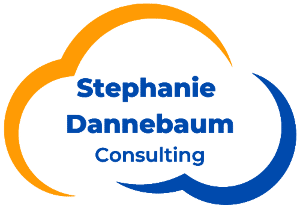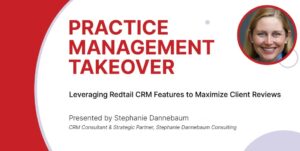In the dynamic world of financial planning, where precision and personalized service reign supreme, leveraging tailored CRM tactics becomes the linchpin for success, especially in the realm of tax planning. This blog unveils the transformative strategies that empower financial advisors to not only maximize operational efficiency but also elevate client satisfaction to new heights. With these insights, professionals can look forward to forging stronger client relationships, optimizing their workflow, and ultimately, securing a competitive edge in the financial industry.
Why Do Financial Advisors Need CRM Software when Tax Planning?
In the intricate world of tax planning, where financial advisors are tasked with navigating a labyrinth of regulations, deadlines, and client-specific financial scenarios, CRM (Customer Relationship Management) software emerges as an indispensable tool. The nature of tax planning requires not just a deep understanding of tax laws and financial strategies, but also an exceptional level of organization and client communication. Financial advisors need CRM software because it provides a centralized platform to manage client information, track important deadlines, and maintain a detailed history of client interactions and financial transactions. This holistic view ensures that advisors can offer tailored advice and timely interventions, significantly enhancing the quality of service and adherence to compliance requirements.
Moreover, CRM software facilitates a more personalized approach to client management, which is crucial in the context of tax planning. With features such as segmentation, targeted communication, and workflow automation, advisors can efficiently address the unique needs and preferences of each client. This personalized attention not only strengthens client relationships but also increases client retention and referrals, which are key to business growth in the competitive financial advisory landscape. In essence, CRM software acts as the backbone of a financial advisor’s operation, enabling them to deliver superior tax planning services by staying organized, proactive, and deeply connected with their clients’ financial goals and needs.
CRM Strategies For Financial Advisors In Tax Planning
- Segmentation and Personalization: Use CRM to segment your client base by financial goals, income levels, and risk tolerance. This can be done with keywords and tags.
- Workflow Automation: Implement automated workflows for regular tax planning activities, such as tracking tax deadlines, sending out document submission reminders, and scheduling check-in meetings. This ensures no client is overlooked and improves efficiency. Utilizing automations in Redtail, recurring workflow features in Wealthbox, and Zapier can help eliminate manual work.
- Data-Driven Insights: Leverage the analytics capabilities of your CRM to gain insights into client behaviors, investment patterns, and potential tax-saving opportunities. Use this data to inform personalized tax strategies. Creating Reports in your CRM will save you time and provide you those metrics you need to understand your business.
- Integrated Communication Tools: Utilize CRM communication tools to maintain consistent and meaningful contact with clients. This could include automated personalized emails, newsletters with tax tips, and alerts about relevant tax law changes. Integrating with other software systems such as Holistiplan, Constant Contact and other software partners can help save time by eliminating the need for manual entries.
- Document Management: Connecting your secure document management system within your CRM to streamline the collection, storage, and retrieval of all tax-related documents. This makes the tax preparation process more efficient and less stressful for both you and your clients. Tip: Create a Website Type in Wealthbox to connect your client’s specific folder in your document storage system such as Box, Dropbox, Google Drive or Citrix Sharefile!
- Proactive Tax Planning Alerts: Set up alerts for clients about important tax planning opportunities or deadlines, tailored to their individual situations. This proactive approach can help clients take timely actions to optimize their tax situations. Tip: Build recurring Activity / Task templates!
- Compliance and Security: CRM systems such as Redtail and Wealthbox have been vetted to be secure. To support your efforts to stay in compliance, build note templates to track all of your client interactions.
These strategies, when implemented effectively through a CRM system, can help financial advisors provide more comprehensive, personalized, and proactive tax planning services, enhancing client satisfaction and loyalty.
What Are The Benefits of Using CRM Strategies For Taxes
Using CRM (Customer Relationship Management) strategies for tax-related services offers a multitude of benefits, streamlining operations and enhancing client satisfaction in several key ways:
- Improved Client Management: Tax professionals can use the CRM system to maintain detailed profiles of their clients, including their tax history, preferences, and unique financial situations. This centralized information makes it easier to provide personalized tax advice, improving client satisfaction and retention.
- Enhanced Efficiency: By automating routine tasks such as appointment scheduling, reminders for document submissions, and follow-ups, CRM systems free up valuable time for tax advisors. This allows them to focus on more complex aspects of tax planning and client consultation, ultimately serving clients more effectively.
- Data-Driven Decision Making: With access to comprehensive analytics, tax professionals can make informed decisions based on trends, client behaviors, and performance metrics. This insight can guide the development of targeted tax strategies, optimize operations, and identify opportunities for growth.
- Better Communication: CRM systems facilitate streamlined communication channels between tax advisors and their clients. Personalized messages, newsletters, and updates ensure clients are well-informed about tax deadlines, legislative changes, and potential tax-saving opportunities.
- Increased Accuracy: Automated workflows and data entry reduce the likelihood of human error, ensuring that tax documents are accurate and compliance requirements are met.
- Secure Document Management: CRM solutions often include secure document management systems, enabling the safe storage and easy retrieval of sensitive tax documents. This not only protects client data but also simplifies the process of managing and accessing documents when needed.
- Proactive Service: Utilizing CRM tools allows tax professionals to be more proactive in their service delivery. By monitoring client accounts and tax deadlines, advisors can anticipate client needs and offer timely advice, preventing last-minute rushes and ensuring clients take advantage of all available tax benefits.
- Scalability: CRM strategies allow tax services to easily scale their operations. As the client base grows, CRM systems can accommodate the increased volume without sacrificing the quality of service, ensuring that each client receives the attention and personalized service they expect.
Incorporating CRM strategies into tax planning and preparation services enhances operational efficiency and client relations.
Optimize Your Tax Planning Strategy with CRM Software
In the evolving landscape of tax planning, embracing CRM software is not just a step towards modernization; it’s a strategic move to ensure unparalleled efficiency and client satisfaction. The integration of CRM strategies into your tax planning process can transform the way you manage client relationships, streamline your operations, and navigate the complexities of tax regulations with ease. As we’ve explored, the benefits of utilizing CRM software extend far beyond mere organizational improvements, offering a comprehensive solution to enhance decision-making, communication, and client engagement.
Now is the time to elevate your tax planning services and set a new standard of excellence in the financial advisory field. Don’t miss the opportunity to optimize your tax planning strategy with CRM software. Contact us today to book your consultation and discover how we can help you harness the power of CRM to achieve your business goals and empower your clients with the best tax advice possible. Let’s take the first step towards a more efficient, personalized, and successful tax planning future together.




